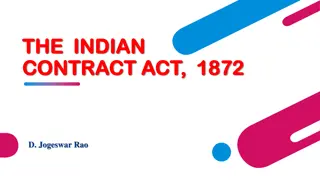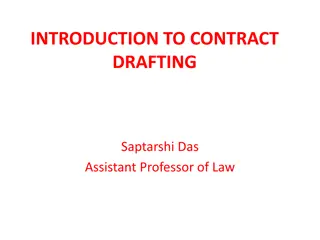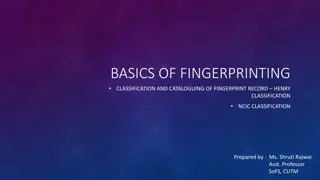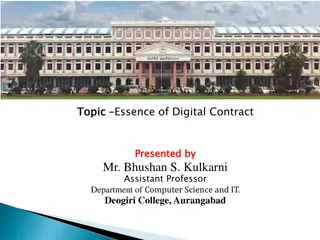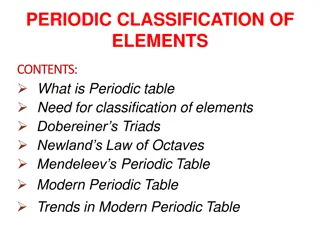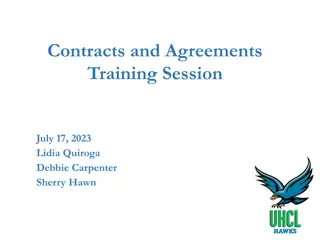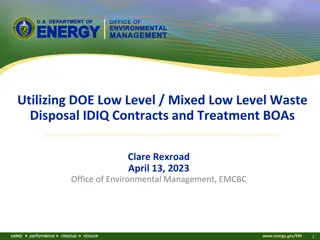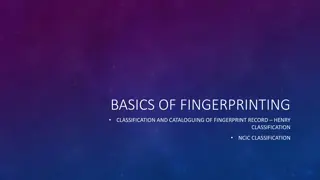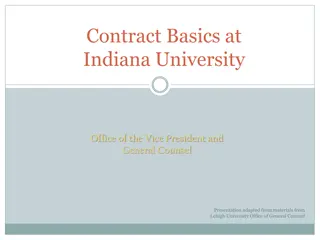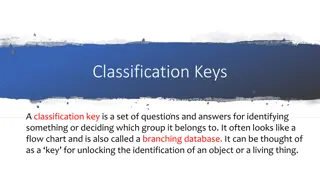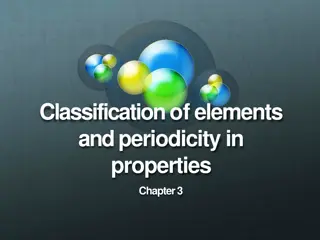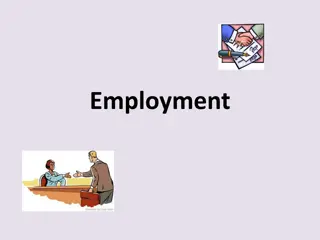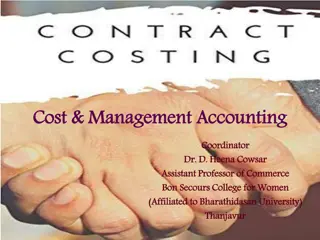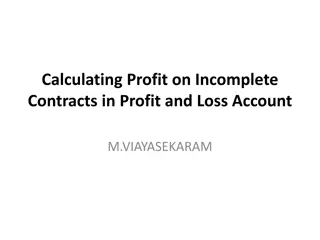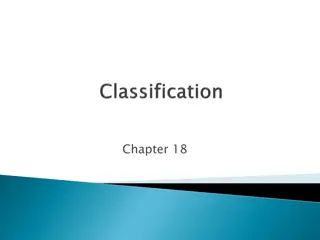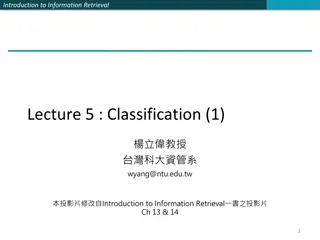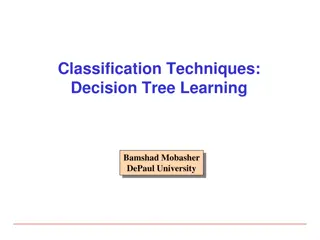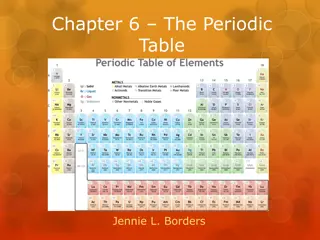Understanding Contracts: Classification and Essential Elements
A contract is an agreement between parties to perform certain obligations. This article explores the classification of contracts based on enforceability, formation, and performance. It discusses the essential elements of a valid contract, types of contracts such as valid, void, voidable, illegal, and unenforceable, and the different modes of creation such as express, implied, and quasi contracts. Dive into the world of contracts and understand the legal aspects governing them.
Download Presentation

Please find below an Image/Link to download the presentation.
The content on the website is provided AS IS for your information and personal use only. It may not be sold, licensed, or shared on other websites without obtaining consent from the author. Download presentation by click this link. If you encounter any issues during the download, it is possible that the publisher has removed the file from their server.
E N D
Presentation Transcript
Hajee Karutha Rowther Howdia College (Autonomous) PG Department of Commerce With Computer Application Subject: Business Law I Subject Code : 17UCAC51 Topic: Classification of Contract, Essential Elements of Contract K . Mohammed Abdul Kader Assistant Professor of Commerce CA
Definition of a Contract The definition of a contract is an agreement between two or more people to do something. An example of contract is a loan agreement between buyers and sellers of a car.
Classification of Contract According to Enforceability i.e. Legal validity According to Formation i.e., Mode of Creation According to Performance
According to Enforceability i.e Legal validity 1. Valid Contract: A valid contract is one that meets the basic elements of contract law. For example, you sign to buy a blue house, and the the contract is valid. house is blue; thus 2. Void Contract: A void contract has no legal force. It is missing an essential element, and thus it is not a contract. For example, a contract to kill would be void, because it has an illegal purpose.
3. Voidable Contract A Contract which is enforceable by law at the option of one party but not at the option of other party for Example mistake, misrepresentation or fraud 4. Illegal Contract: A contract is considered an illegal contract when the subject matter of the an illegal purpose that violates the law. agreement relates to 5. Unenforceable Contract: An enforceable oral agreement that can be imposed in a court of law. If the law permits enforcement of a contract, execution of an agreement is the obligation of the assenting parties. Terms may not be violated or the contract to void. contract is a written or breached without causing
According to Formation i.e, Mode of Creation Express Contract: An express contract is a legally binding agreement, the terms of which are all clearly stated either orally or in writing. 1. 2. Implied Contract: An implied contract is a contract that exists based on the actions of those involved. Though it is not a written or spoken contract, it is just as legal. A contract is assumed to exist based on the behaviors of the parties to it. 3. Quasi Contract: A quasi contract is a contract that is created by a court order, not by an agreement made by the parties to the contract.
According to Performance 1. Executed Contract : When the both the parties have completed the performance their respective obligation, the contract is side as Executed Contract 2. Executory Contract: In this contact the obligation of the parties are to be performed at a later time.
3. Unilateral Contract: In certain contracts one party has to fulfill his obligation where as the other party has already performed his obligation 4. Bilateral Contract: one in which the obligation on the part of both the parties to there contract are outstanding at the time of formation
Offer and Acceptance While discussing the essential elements of a valid contract. Offer or Proposal An offer is defined in sec. 2 of the Indian contract act 1872 When one person signifies to another his willingness to do or to abstain form doing anything.
The person making the proposal or offer is known as proposer, offeror or promisor, The person to whome the offer is made is known as offeree or proposee. When the offeree accepts the offer he is called proposer, offeror or pomisior Giver (A) Receiver(B) Accepts (B) Proposer Offeree Promisee Offeror Proposee Acceptor Promisor
Types of Offer Offer Made basis of i) Express offer, ii) Implied offer Types of Offer (Two Types) 1. ON BASIS OF OFFEREE Specific Offer General Offer ( Offer which made to a define person in a group of persons) (Offer is not made to a one person its to the group in general) 2. ON BASIS OF NATURE Counter Offer (A counter offer is an offer made in response to a previous offer by the other party during negotiations for a final contract) Cross Offer Standing offer (An offer which is remain open for acceptance over a period of time) (when a offer is identical offer, similar in terms and conditions without knowledge of each other is known as crossed offer) the
Essentials of legal Valid offer The offer must be communicated to the party. 1. 2. The terms of offer must be definite and clear. 3. The offer must capable of creation legal relationship. 4. The offer must be made with a view to obtain acceptance. 5. Special terms and conditions of the offer be communicated. 6. An offer may be positive. 7. Two identical cross offers do not result in a contract. (made ignorance)
Revoke offer By Notice By Lapse of time After Expiry of Reasonable time By Death or insanity By Non fulfillment of conditions By Counter offer By Rejection by offeree
Acceptance Sec. 2 Defines Acceptance as When one person to whom the proposal is made signifies his assent thereto, the proposal is said to be accepted when accepted it becomes a promise Who can accept An offer can be accepted only by the person or presents for whom the offer is intended
Essentials of Valid Acceptance Acceptance must be absolute and unqualified (sec. 7 (1)). Acceptance must be communicated to the offeror. The acceptance must be in the prescribed manned. The acceptance must be in response to offer. The acceptance must be by the offeree. The acceptance must be given the offer to lapses or is revoked. Acceptance may be Express of Implied.
Revoke of Acceptances An Acceptance may be revoked at any time before the communication of the acceptance is complete as against the acceptor but not afterwards sec.5.
Consideration () Consideration is one of the most important essentials of a valid contract. In simplest terms, consideration is what a promisor demands as the price for his promise. Consideration is which for what person gives for something he receives. - Something that a Something may be some benefit, right, Interest or profit or it may also be some forbearance, detriment, loss or responsibility upon the other party. Forbearance: , Responsibility: Consideration: Detriment: ,
Sec 2 of Indian contract act defines consideration as following: When at the desire of the promisor the promisee or any other person has Done or abstained form doing ( ) Does or abstains from doing ( ) Promises to do or to abstain for doing something ( ) such act or abstinence or promise is called a consideration for the promise.
Essentials and legal Rule for a valid Consideration The consideration must move at the desire of the promisor The consideration may move from the promisee or any other person The consideration may be past, present or future The consideration need not be adequate. It must be real and not illusory. It must be lawful. It must be something which the promisor is not already bound to do
Exceptions Beneficiaries in the case of trust. Marriage settlement, arrangement. Acknowledgment of liability Contract through agent No Consideration no Contract Exceptions Natural Love and Affection (sec 25(1)) Voluntary Compensation Time barred debt (sec 25 (3)) Agency ( sec 185) Completed gift partition and other family
Introduction Section 10 of the Indian contract act All agreement are contract , if they are made by free consent of the parties competent to contract. What is competency to make contract the Capacity to Contract means the competence i.e. capability of the parties to enter into a valid contract.
Capacity to Contract The term Capacity to contract is defined in sec 11 of the Indian contract act. Every person is competent to contract who is of the age of the majority according to the law to which he is subject, and who is of sound mind, and is not disqualified from contracting by any law to which he is subject In other words 1. Minors. 2. Person of unsound mind. 3. person disqualified by any law to which they are subject.
Capacity to Contract The term Capacity to contract is defined in sec 11 of the Indian contract act. Every person is competent to contract who is of the age of the majority according to the law to which he is subject, and who is of sound mind, and is not disqualified from contracting by any law to which he is subject In other words 1. Minors. 2. Person of unsound mind. 3. Person disqualified by any law to which they are subject.
Minor A minor is a person who has not attained the age of majority. For the Purposes of entering into the contract. The age of majority is Eighteen The term minor is explained in the section 3 of the Indian majority act 1875 which reads as under: A minor is person who has not completed eighteen years of age.
A person become major on completion of 21 years in following two cases Cases Age Where a guardian of minor person or property has been appointed under the guardians and wards act 1890 On completion of 21 years Where the superintendence of minor property is assumed by a court of wards. On completion of 21 years In all other Cases On completion of 18 years
Minor Agreement An agreement with a minor is void The rule of Estoppel does not apply - No Restitution Except in certain cases. Minor is Liability for Necessaries. No specific performance No Ratification A Minor can be a Beneficiary 8. Partnership by Minor ( only to the benefits) Minor can be an Agent (Not labile for any of his act sec 184) 1. 2. 3. 4. 5. 6. 7. 9.
Cont..,,,, 11. Minor can be a shareholder ( only fully paid share ,no shareholder, No Membership, no Member, Refuse to register only when he fully paid the amount of the shares) 12. Minor can not declared insolvent 13. Minor cannot be surety 14. Position of minors parents and guardians.
Unsound Mind In order to be competent ( ) to contract a person should be in sound mind ( sec 11) What is sound mind? Sec 12 of Indian Contract act A person is side to be a sound mind for the purpose of making contract. If at the time when he/she makes it , he is capable of understanding it and of forming a rational judgment as to its effect upon interests.
The Section Further States A person who is usually of unsound mind but occasionally of sound mind, may make a contract. When he is in sound mind. 1.The parties in lunatic asylum who at intervals of sound mind may enter in the contract. 2. Thus a man , who is delirious from fever or who is so drunk that he cannot understand the terms of the contract .
Legal Position of the Persons of Unsound Mind Idiots : a person who completely lost his mental faculties Not Capable to entering into the contract Lunatics : A person whose mental Faculties of thinking are deranged . However the mantel power is not completely lost Can enter in to the contract while in lucid interval Dunked Drinks or Drugs Delirious Person- Old age or poor health persons
Persons who Disqualified by Law Alien Enemies (citizen of foreign country) 1. 2. Foreign Sovereigns and Ambassadors ( & ) 3. Convicts 4. Insolvents



